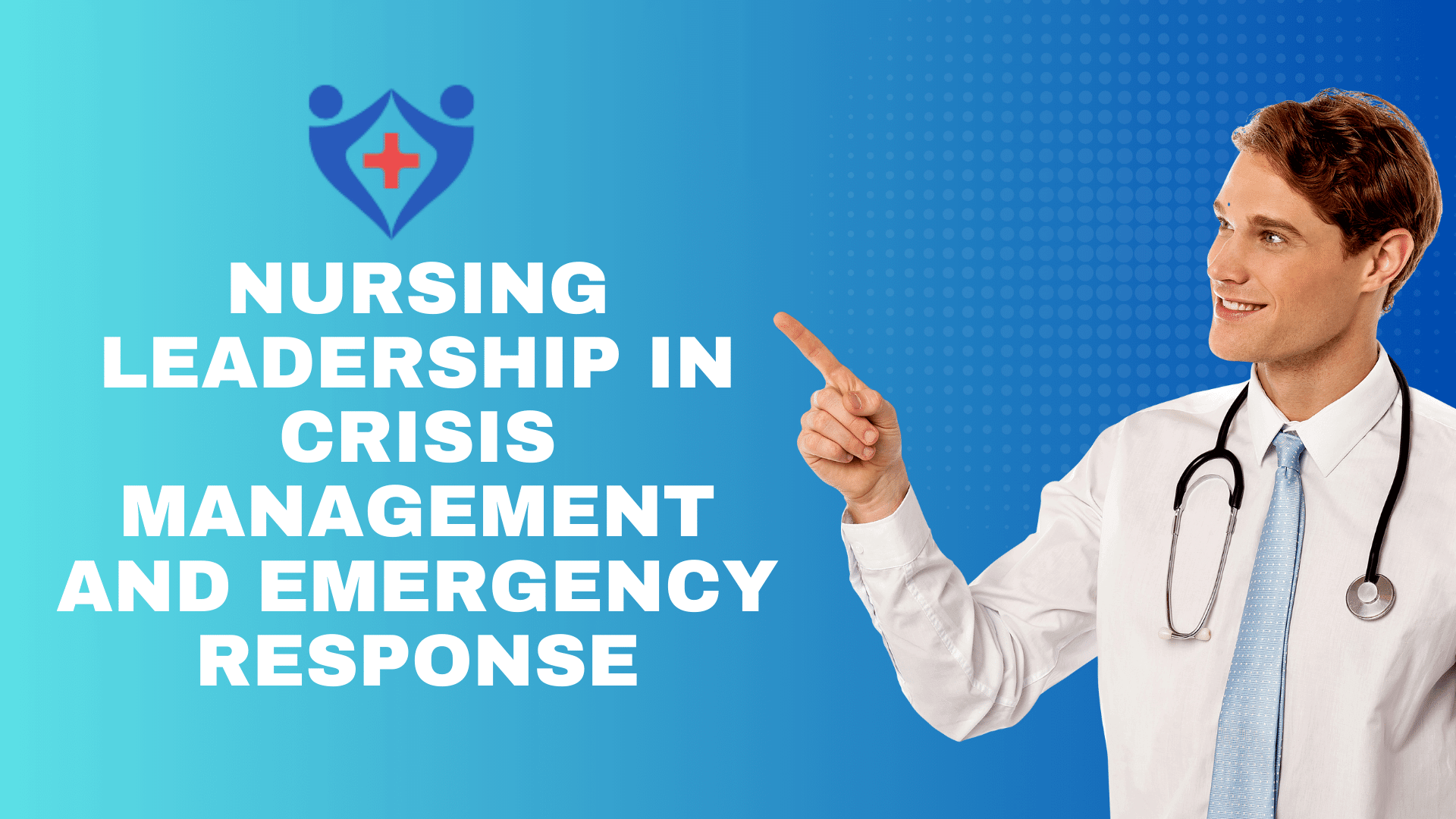In times of crisis and emergency, such as natural disasters, pandemics, or mass casualty incidents, effective leadership within the nursing profession is paramount. Nursing leaders play a crucial role in coordinating response efforts, ensuring patient safety, and maintaining order amidst chaos. This comprehensive guide explores the role of nursing leadership in crisis management and emergency response, offering insights into best practices, challenges faced, and strategies for success.
Understanding Nursing Leadership in Crisis Management
Navigating Complex Environments
During crises, healthcare environments become highly complex, with rapidly changing circumstances and overwhelming demands. Nursing leaders must navigate these complexities while maintaining focus, resilience, and adaptability. They serve as the linchpin between frontline staff, administrative teams, and external stakeholders, ensuring seamless communication and coordination.
Decision-Making Under Pressure
The ability to make swift, well-informed decisions under pressure is a hallmark of effective nursing leadership in crisis situations. Leaders must weigh risks, allocate resources efficiently, and prioritize patient care amidst competing demands. Decisiveness, critical thinking, and a strong ethical compass are essential qualities for nursing leaders during emergencies.
Building Resilient Teams
In times of crisis, nursing teams face heightened stress, uncertainty, and emotional strain. Nursing leaders play a vital role in fostering team cohesion, morale, and resilience. They provide emotional support, clear guidance, and opportunities for debriefing and reflection. By nurturing a culture of psychological safety and support, nursing leaders empower their teams to perform at their best, even in the face of adversity.
Table: Key Attributes of Effective Nursing Leadership in Crisis Management
| Attribute | Description |
|---|---|
| Decisiveness | Ability to make timely, well-informed decisions |
| Communication Skills | Clear, effective communication with stakeholders |
| Emotional Intelligence | Empathy, self-awareness, and relationship management |
| Strategic Planning | Long-term vision and proactive preparedness |
| Ethical Integrity | Adherence to ethical principles and values |
| Collaboration | Interdisciplinary teamwork and partnership building |
| Resilience | Ability to adapt and thrive amidst adversity |
| Continuous Learning | Commitment to ongoing professional development |
Challenges and Barriers
Resource Constraints
Limited resources, including staffing, equipment, and supplies, pose significant challenges during crises. Nursing leaders must make difficult decisions regarding resource allocation, balancing the needs of patients and staff while maximizing efficiency and effectiveness.
Communication Breakdowns
Effective communication is essential for coordinating response efforts and ensuring the safety of patients and staff. However, communication breakdowns often occur during emergencies, leading to confusion, delays, and errors. Nursing leaders must prioritize clear, timely communication channels, utilizing technology, standardized protocols, and regular updates to keep stakeholders informed and aligned.
Ethical Dilemmas
Crisis situations frequently present complex ethical dilemmas, such as triage decisions, allocation of scarce resources, and balancing individual rights with public health concerns. Nursing leaders must navigate these ethical challenges with integrity, transparency, and sensitivity to diverse perspectives. Upholding ethical principles, including beneficence, justice, and respect for autonomy, is essential in guiding decision-making and maintaining trust within the healthcare community.
Best Practices and Strategies
Proactive Planning and Preparedness
Effective crisis management begins long before the onset of an emergency. Nursing leaders should engage in proactive planning and preparedness activities, such as scenario-based training, resource stockpiling, and interdisciplinary collaboration. By anticipating potential challenges and developing robust response plans, organizations can mitigate risks and enhance their readiness to respond effectively to crises.
Collaborative Leadership
Crisis response requires collaborative leadership across various levels of the healthcare system. Nursing leaders must collaborate closely with other healthcare professionals, emergency management agencies, community organizations, and government authorities to coordinate efforts and leverage resources effectively. By fostering partnerships and building trust-based relationships, nursing leaders can enhance the overall resilience and responsiveness of the healthcare system.
Continuous Learning and Improvement
Crisis situations provide valuable opportunities for learning and improvement. Nursing leaders should engage in post-event debriefings, root cause analyses, and performance evaluations to identify strengths, weaknesses, and areas for enhancement. By fostering a culture of continuous learning and improvement, organizations can adapt and evolve in response to emerging threats and challenges.
Conclusion
In conclusion, nursing leadership plays a critical role in crisis management and emergency response. By understanding the unique challenges, adopting best practices, and fostering a culture of collaboration and continuous improvement, nursing leaders can enhance the resilience and effectiveness of healthcare systems in times of crisis. Through proactive planning, effective communication, and ethical decision-making, nursing leaders can mitigate risks, protect patient safety, and support the well-being of their teams. As we navigate the uncertainties of the future, investing in strong nursing leadership is essential for building a more resilient and responsive healthcare infrastructure.


